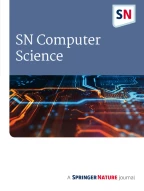Abstract
The agricultural sector plays a crucial role in the Indian economy. According to the Economic Survey of India 2020–21 report, production in FY21 was recorded at 303.34 million tonnes. India is the world’s second-largest producer of tomatoes, both in terms of area and production. In India, tomato is one of the most important and highly consumed vegetable crops. Tomatoes are highly nutritional and thus good for human health. It makes a substantial contribution to the GDP. Being economically valuable, it is produced in large quantities. Because of adverse environmental conditions, several diseases are caused by bacteria, fungi and viruses in various parts of tomato plants. Diseases result in the loss of production and thus farmers have to face huge economic losses. In order to help the farmers, early detection of diseases is needed to be done using the latest and most accurate methods. In this paper, the ES-CNN model(Enhancement Seg- mentation CNN model) is proposed in which mean filtering and CLAHE are performed for the image enhancement step and K-means clustering is used for the image segmentation. ResNet-50, a CNN architecture, has been used for feature extraction and classification of images.
Similar content being viewed by others
Data Availability
Data used in the implementation of the proposed approach will be made available on request after publication.
References
Rangarajan AK, Purushothaman R, Ramesh A. Tomato crop disease classification using pre-trained deep learning algorithm. Procedia Comput Sci. 2018;133:1040–7.
Camargo A, Smith J. An image-processing based algorithm to automatically identify plant disease visual symptoms. Biosyst Eng. 2009;102(1):9–21.
Dhaware CG, Wanjale K. A modern approach for plant leaf disease classification which depends on leaf image processing. In: 2017 international conference on computer communication and informatics (ICCCI). IEEE; 2017. p. 1–4.
Ashok S, Kishore G, Rajesh V, Suchitra S, Sophia SG, Pavithra B. Tomato leaf disease detection using deep learning techniques. In: 2020 5th international conference on communication and electronics systems (ICCES). IEEE; 2020. p. 979–83.
Tm P, Pranathi A, SaiAshritha K, Chittaragi NB, Koolagudi SG. Tomato leaf disease detection using convolutional neural networks. In: 2018 eleventh international conference on contemporary computing (IC3). IEEE; 2018. p. 1–5.
Atila U, Uçar M, Akyol K, Ucar E. Plant leaf disease classification using efficientnet deep learning model. Ecol Inform. 2021;61: 101182.
Too EC, Yujian L, Njuki S, Yingchun L. A comparative study of fine-tuning deep learning models for plant disease identification. Comput Electron Agric. 2019;161:272–9.
Temiatse OS, Misra S, Dhawale C, Ahuja R, Matthews V. Image enhancement of lemon grasses using image processing techniques (histogram equalization). In: International conference on recent developments in science, engineering and technology. Springer; 2017. p. 298–308.
Oo YM, Htun NC. Plant leaf disease detection and classification using image processing. Int J Res Eng. 2018;5(9):516–23.
Sahu S, Singh AK, Ghrera S, Elhoseny M, et al. An approach for de-noising and contrast enhancement of retinal fundus image using clahe. Opt Laser Technol. 2019;110:87–98.
Nanehkaran Y, Zhang D, Chen J, Tian Y, Al-Nabhan N. Recognition of plant leaf diseases based on computer vision. J Ambient Intell Human Comput. 2020;11(9). https://doi.org/10.1007/s12652-020-02505-x
Tian K, Li J, Zeng J, Evans A, Zhang L. Segmentation of tomato leaf images based on adaptive clustering number of k-means algorithm. Comput Electron Agric. 2019;165: 104962.
Patil JK, Kumar R. Color feature extraction of tomato leaf diseases. Int J Eng Trends Technol. 2011;2(2):72–4.
Pooja V, Das R, Kanchana V. Identification of plant leaf diseases using image processing techniques. In: 2017 IEEE technological innovations in ICT for agriculture and rural development (TIAR). IEEE; 2017. p. 130–33.
Guo T, Dong J, Li H, Gao Y. Simple convolutional neural network on image classification. In: 2017 IEEE 2nd international conference on big data analysis (ICBDA). IEEE; 2017. p. 721–24.
Geetharamani G, Pandian A. Identification of plant leaf diseases using a nine-layer deep convolutional neural network. Comput Electr Eng. 2019;76:323–38.
He K, Zhang X, Ren S, Sun J. Deep residual learning for image recognition. In: Proceedings of the IEEE conference on computer vision and pattern recognition. Las Vegas; 2016. p. 770–78.
Azim MA, Islam MK, Rahman MM, Jahan F, et al. An effective feature extraction method for rice leaf disease classification. TELKOMNIKA (Telecommun Comput Electron Control). 2021;19(2):463–70.
O’Shea K, Nash R. An introduction to convolutional neural networks. arXiv preprint arXiv:1511.08458. 2015.
Albawi S, Mohammed TA, Al-Zawi S. Understanding of a convolutional neural network. In: 2017 international conference on engineering and technology (ICET). IEEE; 2017. p. 1–6.
Reza AM. Realization of the contrast limited adaptive histogram equalization (clahe) for real-time image enhancement. J VLSI Signal Process Syst Signal Image Video Technol. 2004;38(1):35–44.
Maity A, Pattanaik A, Sagnika S, Pani S. A comparative study on approaches to speckle noise reduction in images. In: 2015 International conference on computational intelligence and networks. IEEE; 2015. p. 148–155.
Funding
There is no Funding for this project from any University or Agency.
Author information
Authors and Affiliations
Corresponding author
Ethics declarations
Conflict of interest
There are no author conflicts in this paper.
Additional information
Publisher's Note
Springer Nature remains neutral with regard to jurisdictional claims in published maps and institutional affiliations.
This article is part of the topical collection “Machine Learning in Pattern Analysis” guest edited by Reinhard Klette, Brendan McCane, Gabriella Sanniti di Baja, Palaiahnakote Shivakumara and Liang Wang.
Rights and permissions
Springer Nature or its licensor (e.g. a society or other partner) holds exclusive rights to this article under a publishing agreement with the author(s) or other rightsholder(s); author self-archiving of the accepted manuscript version of this article is solely governed by the terms of such publishing agreement and applicable law.
About this article
Cite this article
Bajpai, A., Tyagi, T. An Efficient Approach to Detect and Predict the Tomato Leaf Disease Using Enhance Segmentation Neural Network. SN COMPUT. SCI. 4, 795 (2023). https://doi.org/10.1007/s42979-023-02262-6
Received:
Accepted:
Published:
DOI: https://doi.org/10.1007/s42979-023-02262-6
